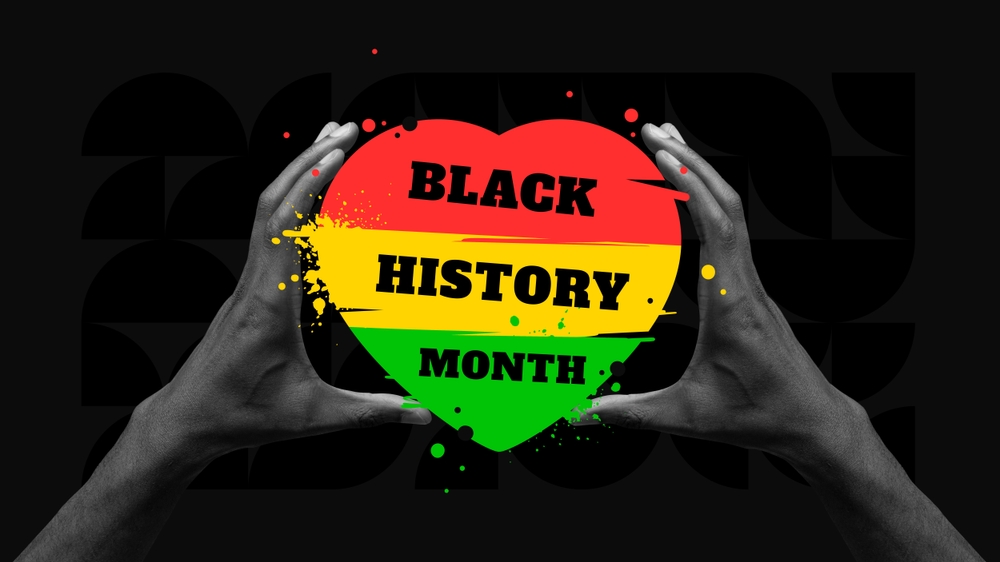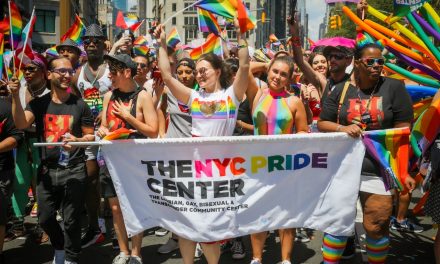(Photo Credits: Master1305 from Shutterstock)
Black History Month is an annual observance celebrated in various countries during the month of February in the United States and Canada, and in October in the United Kingdom. It is a time dedicated to recognizing and honoring the achievements, contributions, and history of Black individuals and communities. The observance has its roots in the efforts of historian Carter G. Woodson, who, in 1926, initiated “Negro History Week” to coincide with the birthdays of Abraham Lincoln and Frederick Douglass.
Abraham Lincoln, the 16th President of the United States, was born on February 12, 1809. He is celebrated for his role in the abolition of slavery, particularly with the Emancipation Proclamation in 1863.
Meanwhile, Frederick Douglass, a prominent African American abolitionist, social reformer, and statesman, was born in February 1818. Douglass escaped from slavery and became a leading advocate for the abolition of slavery and an important figure in the Civil Rights Movement.
The combination of these two significant birthdays led to the establishment of Negro History Week in the early 20th century by historian Carter G. Woodson. Over time, this week evolved into Black History Month, officially recognized and celebrated throughout February.
Black History Month aims to highlight the significant roles Black people have played throughout history, acknowledging their achievements in various fields, including science, literature, art, politics, and civil rights. It provides an opportunity to educate people about Black history and culture, fostering a deeper understanding of the challenges and triumphs faced by the Black community.
Throughout the month, schools, organizations, and communities often host events, discussions, and presentations that focus on the diverse experiences and contributions of Black individuals. It is a time for reflection, celebration, and the promotion of inclusivity and equality. The specific activities and themes may vary, but the overarching goal is to promote awareness and appreciation of Black history and culture.
The theme for Black History Month 2024 is “African Americans and the Arts” to spotlight, honor, and celebrate the “many impacts Black Americans have had on visual arts, music, cultural movements, and more.” Those who wish to check the resources as well as the events for this year’s celebration may click here.
That being said, there are many prominent gay Black men and women who have made significant contributions to various fields. To name a few, we have:
1. Bayard Rustin: A key figure in the civil rights movement, Rustin was a close advisor to Martin Luther King Jr. and a leading advocate for nonviolent protest. He was openly gay and fought for LGBTQ+ rights.
2. James Baldwin: A renowned author, Baldwin’s works, such as his novels “Go Tell It on the Mountain” and “Giovanni’s Room,” explored themes of race, sexuality, and identity.
3. Alvin Ailey: Ailey was a pioneering choreographer and founder of the Alvin Ailey American Dance Theater, one of the most celebrated modern dance companies in the world.
4. RuPaul: A drag queen, singer, and television personality, RuPaul is best known for hosting “RuPaul’s Drag Race” and has played a significant role in mainstreaming drag culture.
5. Billy Porter: An actor, singer, and performer, Porter is known for his roles in theater productions and TV shows. He made history as the first openly gay Black man to win the Emmy Award for Outstanding Lead Actor in a Drama Series for his role in “Pose.”
6. Laverne Cox: An actress and LGBTQ+ advocate, Cox gained fame for her role as Sophia Burset in “Orange Is the New Black” and has been a prominent transgender rights activist.
These individuals, among others, have played crucial roles in their respective fields and have contributed to the visibility and acceptance of LGBTQ+ individuals, particularly within the Black community.
Happy Black History Month!










why the invaders get a month from the anglos?
when we take over it will be Mexican History Por Vida
“No Me Molestes, Por Favor”!
“Ay! Caramba”!
“Viva El Blancos”!
Luis:
Just-for-the-sake-of-clarification:
Blacks did not “Invade –
They were “Imported”!
We should have picked our own cotton
You big dummy, you! Africa was invaded; we were stolen and transported like animals, all over the Carribean, all over south America, the southeast of south America.
The Americas you ancestors once knew, that spanned both western north and south America; were also invaded, but by firstly; the Spanish, not Anglos.
Lamar:
When you hit-the-mark –
you give Kasper –
competition!
How was we the invaders when we were on slave ships and forced to pick cotton while getting raped and beat? Do you know anything about the US history? Don’t be mad because we were willing to fight for our justice while you guys chose not to.
Ooh, shit, Ryan, you’re a striker, you hit the mark!
It don’t matter mayate. When we take over you and yours will be gone. Adios putos
What you need to be doing is taking over that broom and dust pan..The floors need sweeping. Don’t be coming on here and trying to be some type of online warrior. Especially during election season with Trump being the front runner and America is talking Immigration statuses.
I couldn’t be prouder to be born an African-American. My ancestors fight, strength, drive, resilience, intelligence, patience, determination, faith, etc made me the man I am today. Happy Black History Month.
And do you know, ‘our’ ancestors actually fueled the industrial revolution, around the world, period.
We’re clearly, a most remarkable people, with as little of nothing we started out with; just imagining, “pulling-up your bootstraps” when you have none in the first place, not even clothes.
Nobody, but nobodies done what we have, with as little; can’t tell me God don’t exist, within ‘us’.
And I think, that’s ‘why’ we’re most despised, yet, admired in the world among others.
I agree and that is what makes me so proud.
I’ve thought about what I’m about to type. Given it hours before doing so …
I’m as offended about anyone claiming I’m a racist White cause I was BORN WHITE as anyone say NIGGER when referring to individuals of their genetics,
Both are true. Both when used as putdowns (hello Liberals) are not acceptable.
I read what you wrote several times and I honestly don’t get it. Did someone call you a racist? Not going to address the n- word until I get more clarification from you. I really want to understand what you’re saying.
I refuse to stoop to your ignorant-azz level but don’t you ever reply to me again using that nasty, racist, hateful, n-word. I’m surprised that the moderator allowed that stupid comment to be delivered. How dare you use that word during Black History Month. I despise when short azz punks like you hide behind the keyboard in your grandmother’s basement and puke out such hateful dialog. That dayum word is not acceptable whether you are trying to make a point or not!!!!
For Hunter0500 (red dot)
If “Black History Month” is but one-month-a-year –
then
“White History Month”
is
but eleven months-a-year?
1/12 I suspect is a start?
Just pointing out the absurdity of 1/12!
Yes, a whole month. The Progressive/Liberals behind the month couldn’t possibly have thought back then that the simple addition of individual days for Blacks of note would be the right/fair/equitable/smart thing to do. Oh, no. “Whites have had all year to celebrate themselves for ever” so now, suddenly, Blacks ‘deserve’ a whole month.”
Since then, MLK Day Kwanza, and Juneteenth have been added as individual days. The better way to go.
As would/will be the same for other Social heroes (whether by Race, Color, Sexuality, gender … whatever comes down the road.
Agreed, Hunter!
Of course –
If it is “Saleable” and “Profitable.” –
It is even better!
It is all about “Marketing”
in
a “Capitalist Economy”
where –
“Supply and Demand” Rule.
It comes and it goes…
but –
is
anything actually realized?
To answer your query; “anything actually realized?” Apparently no, not if by “Caucasians” but for Blacks-African Americans, it’s a revelation of our entire original culture; bringing ‘us’ face to face with who we originally were and still are; that which this newly coined “white man’s country” has striped ‘us’ of. . . as a means of dehumanization. This is why I love and contribute, to the PBS stations, go to the libraries . . . you can see and hear world history period, at home in living color and surround sound, learning. . . so it’s about much, much more… Read more »
“Black History,” is as American as apple pie, ’cause everywhere you look in this country, we hand a hand in it, in some way, shape or fashion.
“Black history,” is all day, every day, 365 days a year, actually, that’s how “all American,” we actually are.
Right along-side everyday history.
Lamar:
Is using his “Elephant Rifle”
firing with both barrels!
Exactly Lamar! I chuckled a bit today reading an article on my newsfeed written by a Black professional successful female who said the month was nonsense. Black history in the US as as American as everything race has done to contribute to the country’s growth for almost two centuries; any division is stupid. It is driven by the Left’s need to divide us for control. Just as they’re now going after immigrants from south of the US (illegal and legal) for votes. Makes sense since I’ve seen other articles about how Blacks are come to understand that the Left has… Read more »
True, to some degree, I wouldn’t deny those statements. However, the right-side of politics, omg, if they had their way, we’d still be in the fields under the exact same conditions as in “Jim Crow” the good ole’ days as far as they’re concerned, the days when they had no competition/s. The dominance, that is in control, means to stay in control, by means of division, of all those, of various peoples of color. “The enemy of my enemy, is my friend.” All you need do, is play pool, look closely, notice the objective, as related by the color of… Read more »
See Luis’ post at the top of this article. Once the South of the Border folks figure out the Left is really doing them no long-term good, there will be hell to pay. Government handouts only go so far and quickly come up much shorter than jobs and careers in a strong economy do. Yes, the downside is the rich make money. And surprise! There a many many Rich Lefts making themselves richer at taxpayer expense.
And the right, does so much better, really, prove it, you can’t.
The Right hasn’t pandered to or made repeated promises to specifically support Blacks and Latinos and then not delivered. The Left has since the 1960s. A Gallup poll released yesterday showed increasing numbers in both groups are saying they’re fed up with being misled (by the Left) and plan to vote for a strong economy (by the Right). Also in recent weeks, the Left (Democratic Party Leaders) and the Biden administration have stated in mainstream media a concern about retaining votes from these two groups and increased efforts to court the two to make sure the Party keeps the White… Read more »
We don’t like the Anglos either. You brought the monos. Take them with you when we send you back to Europa.
Adios pinche eslavas
You .. who?
“pinche eslavas” … “fucking Slavics” ???
Yes indeed it is absurd!!! but believe me, we celebrate black history every day. We teach our children black history in our churches and our homes all year round. We make them fully aware of blacks accomplishments. When I was in elementary school, I was introduced to all history, as it should be.
And give them books, like that of African history prof. Henry Louis Gates Jr.
What people were on the North and South Americas first?
Who came from Europe and overtook them?
At the same time enslaving NOT ONLY Indigenous people here and those from Africa?
African tribes sent losing tribes to slavery for a price.
The story is ugly,
It’s one sane people acknowledge and commit it to conversations about what ancestors did and how we’ll ALL needing it move forward.
Stop the blame; All of our heritages are part of it. Shut up and figure out what’s next.
Attn A4A monitors
Hunter0500` … with the dot after it is NOT me.
Attn A4A : hat symbol is NOT common. I’ve done some research. Only certain people would know to use it and what key strokes are needed to create it. In this case, its use is fraud to mislead members into my postings.
Not sure who you are
Hunter0500` … with the dot after my profile name.
Not sure who you are. But you are NOT me.
THIS SHOWS GAY BLACK MEN ( THE SMALL DEMOGRAPHIC THAT CHASE WHITE MEN )WHAT MOST GAY WHITE MEN —REALLY—– THINK OF YOU! JUST BECAUSE THEY COME AT YOU HIGHLY RACIAL AND DISRESPECTFUL WITH THAT “BBC” AND ” BIG BLACK COCK BS WHICH IS OFFENSE EVEN TO ME. NO RESPECT OR DO EVEN LIKE YOU UNLESS IT IN THE AM OR THEY ARE “TRAVELING” AND AWAY FROM THE FRIENDS ETC
Started reading … couldn’t handle the yelling (all caps).